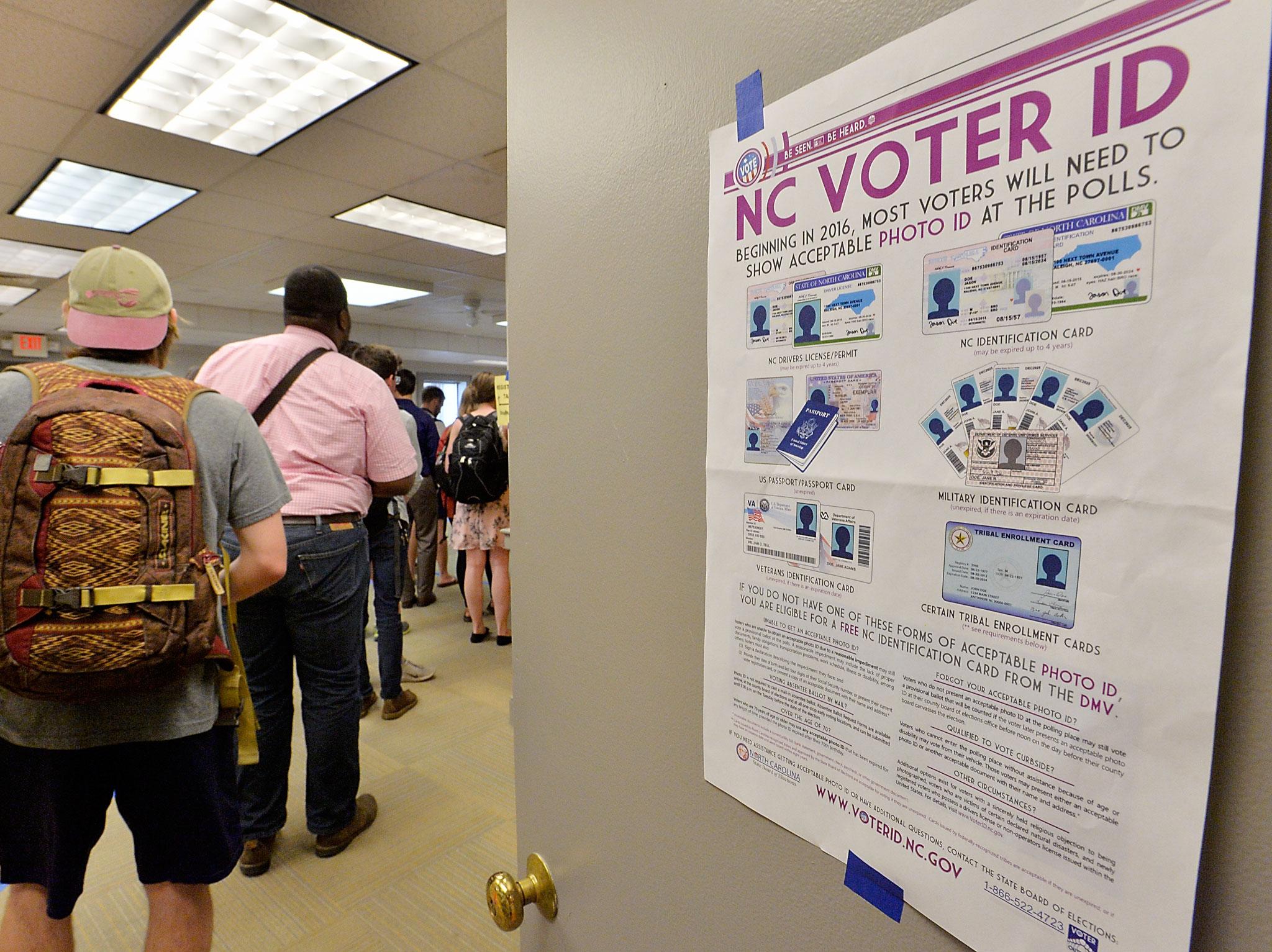Federal court strikes down discriminatory North Carolina voter ID law
The judges found that the law was implemented with 'discriminatory intent'

A federal appeals court has sided with campaigners who accused conservative legislators of hampering the ability of black people to vote.
Civil rights activists challenged a voter identification law drafted in 2013, which they said have the potential to disenfranchise countless people. Opponents of such laws said the required documentation disproportionately affected voters of colour who were unable to obtain such identification.
In a damning landmark decision, the 4th Circuit Court of Appeals sided with opponents of the law and found that it targeted black voters “with almost surgical precision” and imposed “cures for problems that did not exist”. In doing so, North Carolina legislators violated the Constitution and the Voting Rights Act, the three-judge panel said.
The decision comes after a Federal District Court had upheld the law in late April, in the midst of an election year and inflamed racial tensions in the US.
“In holding that the legislature did not enact the challenged provisions with discriminatory intent,” the opinion said, “the court seems to have missed the forest in carefully surveying the many trees.”
The judges also found evidence of discrimination in the instance of early voting, a process in which a large percentage of black voters participated.
“African Americans disproportionately used the first seven days of early voting,” it said. “After receipt of this racial data, the General Assembly amended the bill to eliminate the first week of early voting, shortening the total early voting period from seventeen to ten days.”
Allison Riggs, lead lawyer for the League of Women Voters – who sued the state alongside the Department of Justice and NAACP – called the decision a “strong rebuke” to the 2013 changes.
“It’s a powerful precedent that … federal courts will protect voting rights of voters of colour,” she said.
President of the North Carolina chapter of the NAACP, Rev William Barber, said that the court’s decision was “ a vindication of our constitutional and moral critique and challenge to the constitutional extremism of our government”.
Republicans who supported the voter ID laws maintained that they were trying to prevent voter fraud with the revisions – a claim the court dismissed.
“We can only wonder if the intent is to reopen the door to voter fraud, potentially allowing fellow Democrat politicians … to steal the election,” North Carolina Senate leader Phil Berger and House Speaker Tim Moore said in a joint statement.
Both Attorney General Loretta Lynch and Hillary Clinton lauded the decision by the three judges – all of whom were appointed by a Democratic president.
The revisions by North Carolina legislators required photo ID, restricted early voting, prohibited same-day registration, as well as the ability of voters to cast out-of-precinct provisional ballots within their counties.
However the court determined that these restrictions affected black voters significantly.
Similar laws in Texas and Wisconsin were struck down in federal courts over the last month.
“We recognize that elections have consequences,” the court said, “but winning an election does not empower anyone in any party to engage in purposeful racial discrimination.”
Subscribe to Independent Premium to bookmark this article
Want to bookmark your favourite articles and stories to read or reference later? Start your Independent Premium subscription today.
